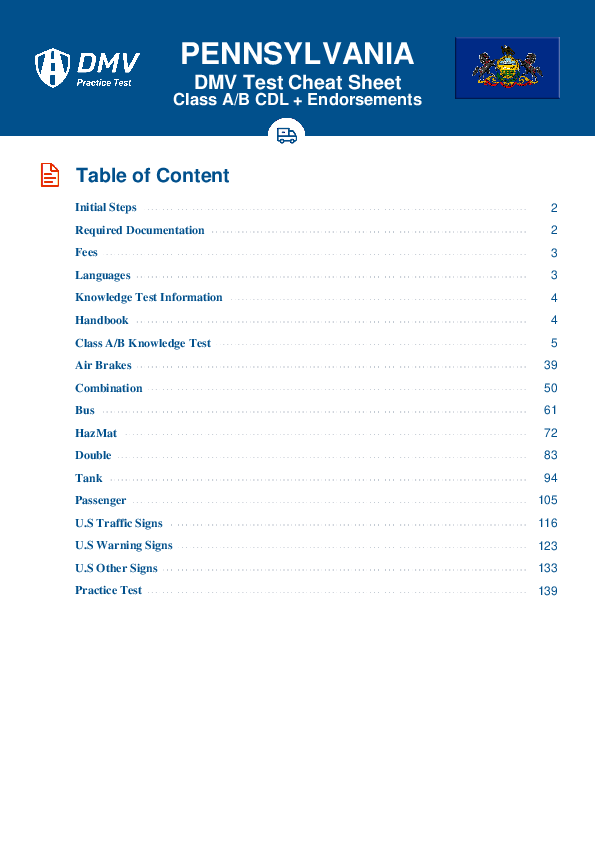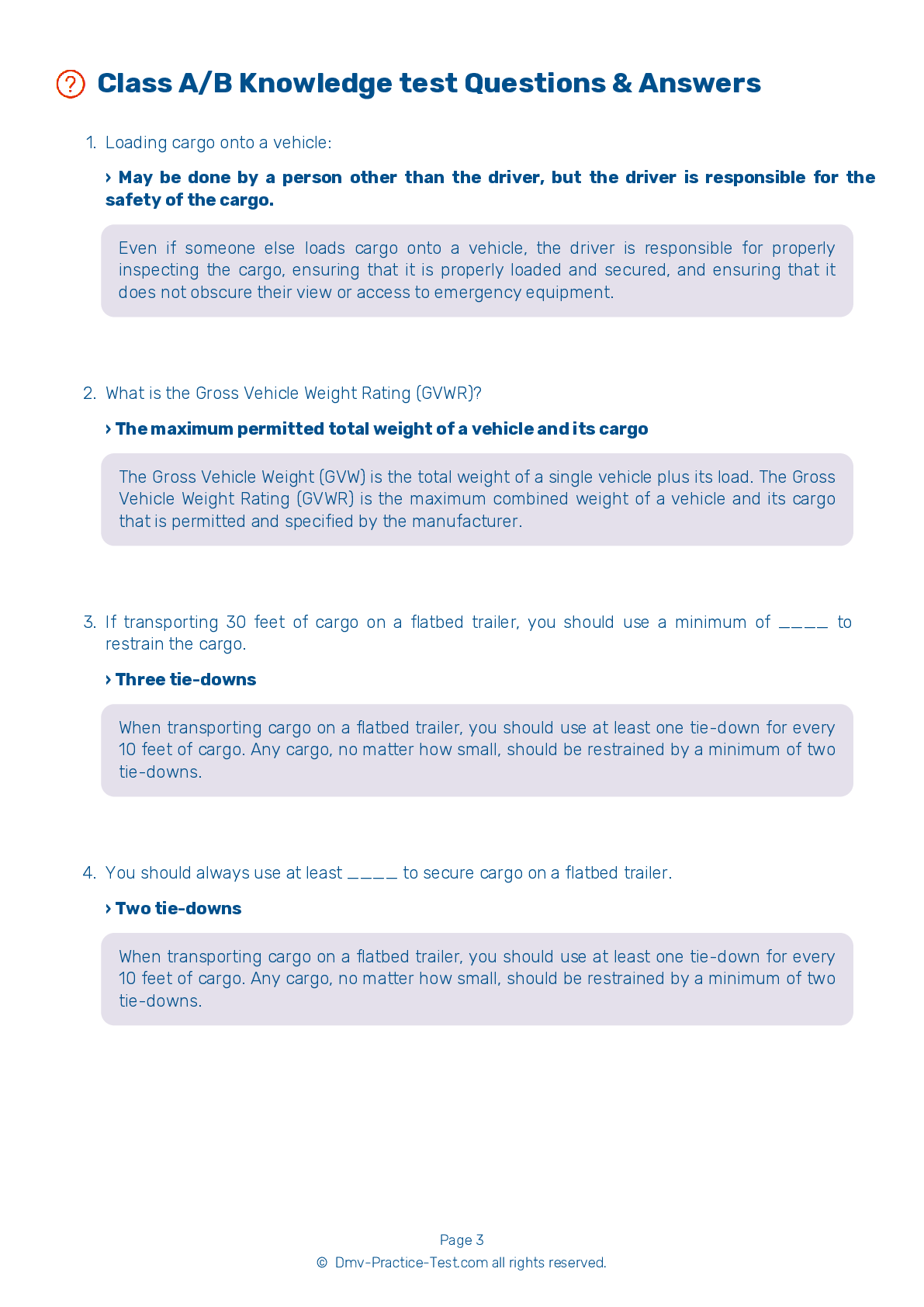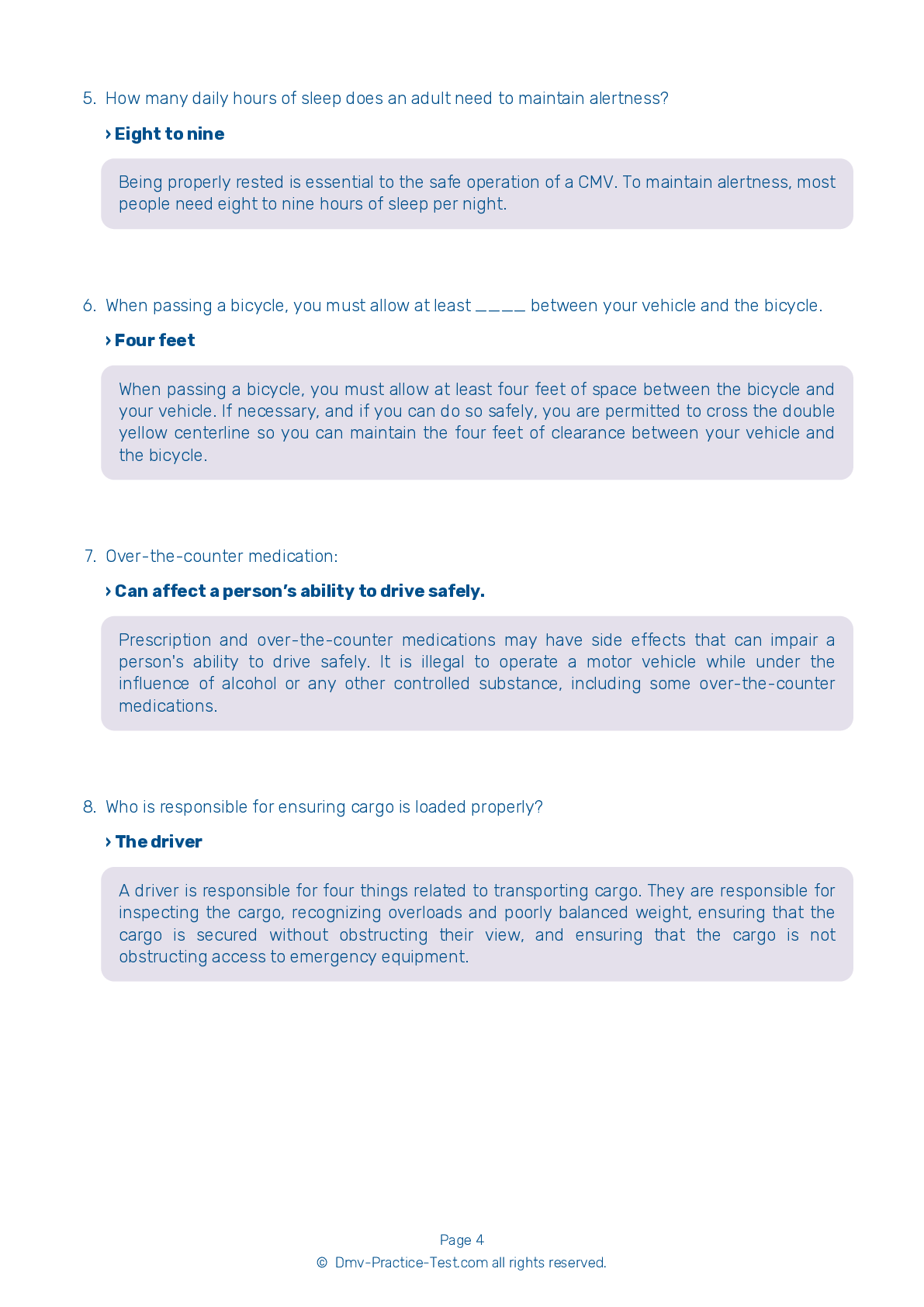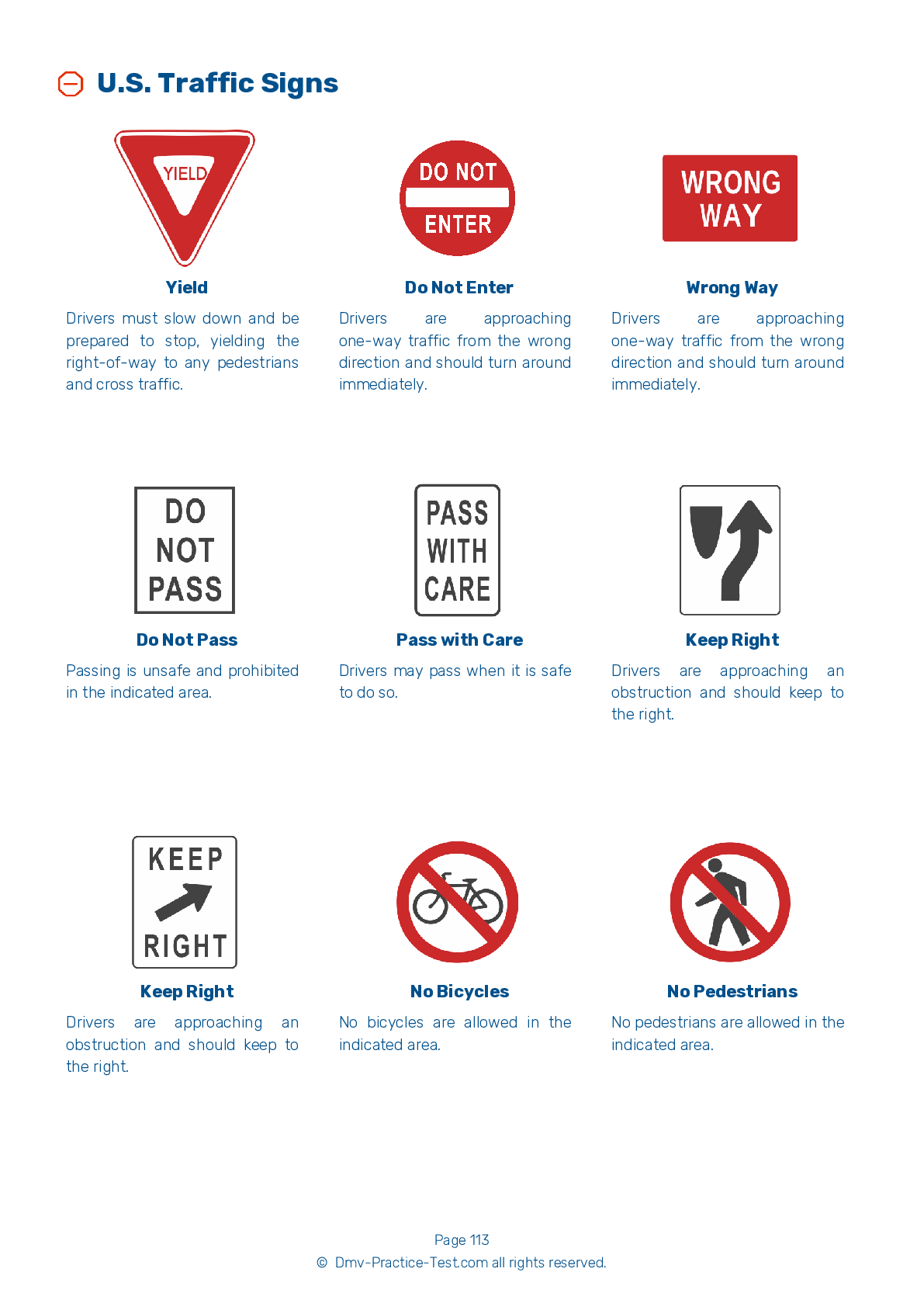Double Triple Test | Pennsylvania 2026 #2 Page 2 of 3
Train for FREE with our Pennsylvania CDL double triple practice test online. The official exam test consists of several obligatory parts, with all of them checking your knowledge of different blocks of road rules. If you need to obtain a PA CDL double triple license in 2026, practice as much as possible. Free sample tests published on our website will help you check and improve your knowledge and boost your grades. Please bear in mind that DMV requirements may vary from state to state.
8 . In a double or triple combination:
In a double or triple, the more heavily-loaded trailer should be immediately behind the tractor.
9 . If an Anti-Lock Braking System (ABS) is equipped on a trailer but not on a tractor:
A vehicle being equipped with anti-lock brakes on only the tractor or only the trailer provides additional control during braking.
10 . Due to the "crack-the-whip" effect:
Double and triple trailer combinations are more likely to turn over due to the "crack-the-whip" effect than are other combination vehicles. Drivers should be aware of the rearward amplification of their specific vehicles and steer accordingly.
11 . Bicyclists are:
Bicyclists are considered vehicle operators and, with certain exceptions, must obey the same laws as other traffic. They may ride on the shoulder or berm, but are not required to do so. They may also travel at less than the minimum posted speed limit without being cited for a traffic violation.
12 . A speed limit posted on a curve:
A posted speed on a curve may be safe to be driven when operating a straight truck or a single-trailer combination but unsafe to be driven in a double or triple.
13 . When inspecting underneath your vehicle for leaking fluids, you must look for all the following, except:
When approaching your vehicle before a trip, be sure to look underneath the vehicle for fresh oil, coolant, grease, or fuel leaks.
14 . If the brake pads rub against the brake drums and create too much heat:
Brakes heat up with use. If they are overused and become too hot, expansion and chemical changes will make them less effective and eventually cause them to stop working altogether. This is known as "brake fade."
See the exact questions that will be on the 2026 Pennsylvania DMV exam.
99.2% of people who use the cheat sheet pass the FIRST TIME
Lillian MCcranie explains how our CDL study guide was helpful in passing the exam and recommends it to everyone.
Cameron tells us how he purchased the CDL exam, and found it to be a useful tool which helped him pass the exam and find a job.



